Ban on student politics: Will Buet protesters’ campaign see success?

One cannot help but note the irony of a united campaign protesting against student politics when it is obvious that student politics is very much alive on the campus of Bangladesh University of Engineering and Technology (Buet). Whether by design or not, the united stance of Buet students against "student politics," as they term it, is actually quite an organised political campaign itself. It could not be simply a matter of coincidence that hundreds of students came together with placards and posters and decided to articulate their demands in a single voice. It is in fact heartening to see that students have the ability to organise with any formal structure underneath the surface of an apparently apolitical campus where student politics—one should perhaps qualify that as partisan politics—has been banned for several years now. University campuses in the country have traditionally been fertile grounds for political thought and popular campaigns. They have spawned scores of politicians who have then been at the forefront of movements against injustice and tyranny from even before Bangladesh was born.
Hence, the fundamental right to assemble and organise, the right to association and movement should be sacred to the students. And yet, they are willing to forego this right—demanding, in fact, that it be taken away. The recent wave of protests was triggered by a Buet student taking part in a procession of Bangladesh Chhatra League (BCL), the ruling Awami League's student wing. Buet students mounted a united campaign boycotting classes and exams, demanding that the university authorities expel the student, who is also a Chhatra League leader, and keep the campus "free of politics."
Given the obvious contradiction with the letter of the law, the High Court stayed the ban on politics in the country's premier engineering university in response to a petition. Despite the patently undemocratic nature of the campaign, for every citizen and party should have the right to take part in politics, it has gained much currency among commentators. In reaction, the Awami League has resorted to its typical scare-mongering tactics, saying that the Buet campus has actually become a den of religious extremists, that it has become a hub of Shibir activists, which is the student wing of Jamaat-e-Islami, the largest fundamentalist party in the country.
Former students have commented on how peaceful and harmonious campus life has been over the last four and half years that the campus has been free of politics. Former and current students say residential halls have become habitable where general students are not preyed upon, standard of food has improved, student life has become more vibrant, and the campus has become alive with cultural activities, concerts and the likes since the looming spectre of partisan politics was lifted in 2019, following the murder of a second-year student at the hands of BCL cadres.
The current campaign is not quite against student politics in Buet. It is against partisan politics, essentially to remain free from BCL clutches. Because the ruling party's student wing has proven to be unruly and predatory, removing any semblance of opposition from the university campuses and residential halls. Resumption of partisan politics on campus would almost automatically mean that the campus reverts to BCL's complete domination.
This is quite a unique scenario where the general body of students has risen essentially to keep the Chhatra League out of its campus. They are, of course, articulating their demands differently and not pointing fingers at anyone, but their goal should be quite obvious. Furthermore, different quarters actually sympathise with their demand and mostly have spoken out in their favour. The ruling party, for its part, having decimated the opposition, and its student wing having established itself as the dominant organisation across university campuses, has not faced such a campaign in recent memory. Even the government appears to be treading with caution, especially since it was with the verbal endorsement of the prime minister that partisan politics was banned in Buet.
This campaign, refreshing though it might be to see as some form of challenge to BCL, will almost certainly be crushed, whether from inside or by brute force, since the ruling party and its student cadres have become rather unaccustomed to such vocal opposition. Also, the longer such a menace is allowed to fester, the higher the chances of such ideas spilling over to other campuses. If the Buet students have their way, then it would set up an inspiring example for others to emulate. That would not bode well for BCL, especially because many would venture to say that the current campaign, in the interest of student welfare, is what student politics should revolve around. Student politics should not be about furthering the agenda of political parties.
Resumption of partisan politics is only an impending eventuality in Buet. The first step was most likely the petition with the High Court, which quite predictably stayed the ban, since it contradicts with the fundamental rights. But mere resumption of partisan politics in itself will not be sufficient. The student cadres will want to return with furious vengeance. Those perceived to be leading the current campaign—those demanding the expulsion of a BCL leader, no less—will have to be made into examples to demonstrate what becomes of challengers. That would trigger caution among the general students to tread more carefully, and not just at the engineering university.
For all anyone knew, none of the political parties were active on Buet campus. There was no formal structure of student government at the university. And yet, students have rallied to a common cause with resolve and most likely around a core group that is stewarding this campaign. It serves as yet another example of how popular, and apparently apolitical, opposition can crystalise almost out of thin air. History is replete with such examples of dictatorial regimes crushing all forms of opposition for decades only to find out suddenly, to their dismay, that the people have risen up in opposition.
Tanim Ahmed is a freelance journalist based in Dhaka.
Views expressed in this article are the author's own.
Follow The Daily Star Opinion on Facebook for the latest opinions, commentaries and analyses by experts and professionals. To contribute your article or letter to The Daily Star Opinion, see our guidelines for submission.

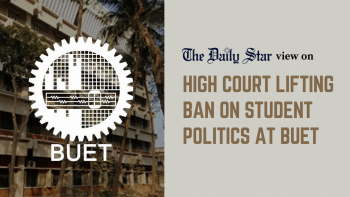
 For all latest news, follow The Daily Star's Google News channel.
For all latest news, follow The Daily Star's Google News channel. 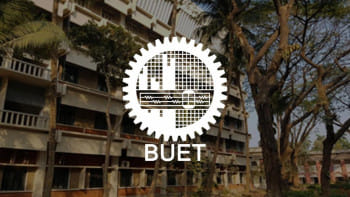

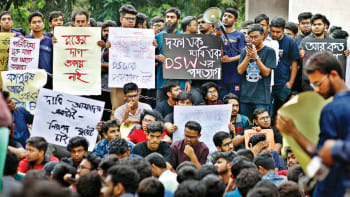
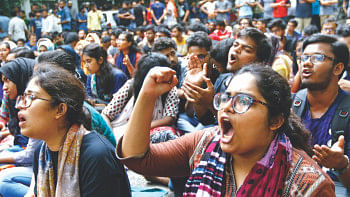




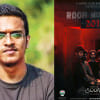




Comments